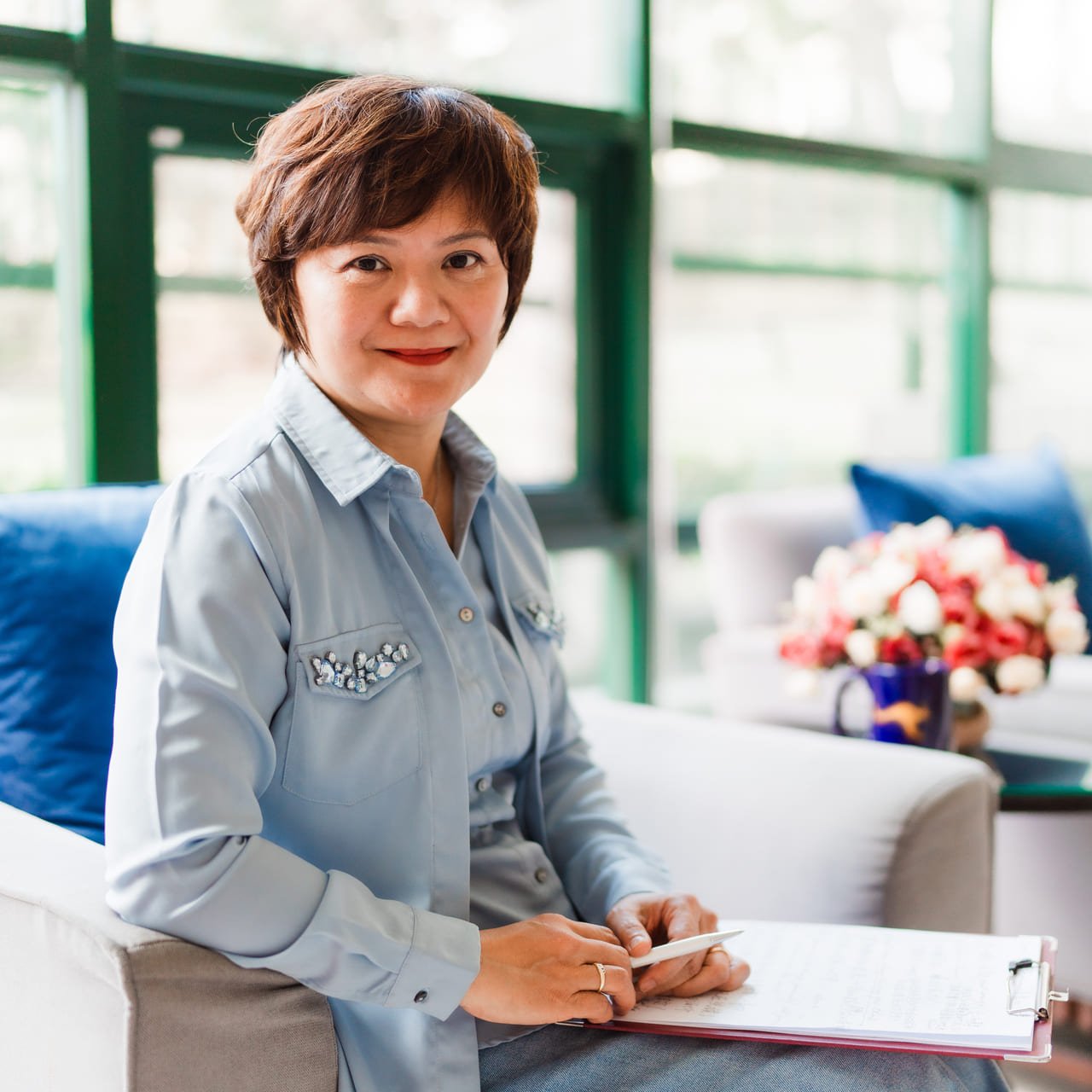
Psychological Counseling Services
Improve physical, mental and
spiritual health and happiness
Use exploration, awareness and acceptance to promote
self-growth and build meaningful and loving relationships.
Psychological Counseling Services
Improve physical, mental and spiritual health and happiness
Use exploration, awareness and acceptance to promote self-growth and build meaningful and loving relationships.

Psychological Counseling Service Categories





Psychological counseling topics that I am good at handling include:
| • Emotional distress and emotional intelligence cultivation | • The relationship between childhood trauma and newborn families |
| • How to rebuild a secure attachment pattern | • Parenting challenges and repair of parent-child relationship |
| • Psychological adjustment of new parents | • Self-development of teenage parents |
| • Teenagers’ difficulties in making friends and hesitation about the future | • Solution to relationship problems between mother-in-law and daughter-in-law |
| • The secret of getting along with each other in an intimate relationship | • How to manage a happy marriage |
| • Self-image repair and self-growth | • Cross-cultural marriage issues and life adaptation |
| • Crisis Intervention | • Psychological adjustment in response to mid-life crisis and menopause |
| • Pension planning and end-of-life expectations | • Loss and mourning |
| • Find the meaning of life and a sense of hope |


Psychological counseling topics that I am good at handling include:
- Emotional distress and emotional intelligence cultivation
- The relationship between childhood trauma and newborn families
- How to rebuild a secure attachment pattern
- Parenting challenges and repair of parent-child relationship
- Psychological adjustment of new parents
- Self-development of teenage parents
- Teenagers’ difficulties in making friends and hesitation about the future
- Solution to relationship problems between mother-in-law and daughter-in-law
- The secret of getting along with each other in an intimate relationship
- How to manage a happy marriage
- Self-image repair and self-growth
- Cross-cultural marriage issues and life adaptation
- Crisis Intervention
- Psychological adjustment in response to mid-life crisis and menopause
- Pension planning and end-of-life expectations
- Loss and mourning
- Find the meaning of life and a sense of hope
Counseling Services FAQs
• Who needs psychological counseling?
⎯ When you encounter problems, even if you use previous solutions, you are still unable to improve; or you feel confused about yourself, your mood is repeatedly entangled, and you feel that there is no way out or retreat.
⎯ When you encounter difficulties or major choices in life, interpersonal relationships, workplace, relationships, etc., you hope to have professional knowledge to provide different opinions.
⎯ When you feel that you have depression, anxiety, bipolar disorder or other physical and mental symptoms, you hope to have expert assistance and treatment by a psychiatrist.
⎯ When the stress and physical symptoms in your life persist for a long time and even affect normal life functions, such as: poor eating, poor sleep, not wanting to go out, work burnout that affects performance appraisal, and poor interpersonal relationships.
⎯ When you behave uncontrollably, you may endanger your own happiness and the happiness of others.
• There are usually three types of people who come for consultation:
(1) People who want to solve the problems they are facing now and avoid being overwhelmed by pressure.
(2) People who do not want to be bound by past problems and continue to suffer.
(3) People who are eager to seek self-growth and make positive changes in their lives.
• What are the major stressful events?
⎯ Changes in living environment
⎯ Changes in work patterns
⎯ Separation from friends and family
⎯ Lose & Grief
⎯ Death of a pet
⎯ Changes in intimate relationships
⎯ Increasing age (changes in life stages)
⎯ social unrest
⎯ Changes in the international situation
• When do you know you should see a psychological counselor?
When you think, “Do I need counseling?” that’s a reminder.
• What can I expect during treatment?
Early therapy often involves getting to know you, your story, and what you hope therapy will help you with.
Each therapy session can then vary based on your most relevant concerns and needs and agreed goals. Generally speaking, however, you will learn to manage your symptoms so that they stabilize over time (although symptoms increase due to triggers).
Other aspects of the therapeutic process may include, where relevant, inviting you to understand the role and function of your emotions, increasing your self-awareness and ability to work with your emotions, exploring any limiting thinking and automatic behavior patterns, and guiding you to understand the underlying reasons behind the way you feel, react, and behave. Through awareness, you can choose your path forward with greater clarity and purpose.
The treatment process can be both difficult and rewarding. There are real growing pains, but I have seen countless people experience these growing pains and milestones in their lives, and then feel a sense of genuine relief, awe, joy, and gratitude when it all happens.
• How long does each treatment last?
Each session of individual therapy usually lasts 60 minutes, each session of parent-child and intimate relationship issues for two people is 90 minutes, and each session of family therapy with more than two people is 120 minutes.
• How long will it take for me to receive treatment?
Weekly appointments for treatment are recommended, especially in the early stages of treatment. As you become more confident in controlling your symptoms and triggers, the frequency of treatments will usually decrease accordingly. Having said that, everyone has different needs. It is recommended that you and your therapist discuss the frequency of therapy sessions when you begin working together.
• How many treatments do I need?
This depends on many factors, including your treatment goals.
Research shows that symptom relief may require approximately 8 to 20 sessions. Deeper therapeutic work that promotes more secure, compassionate, loving, and confident relationships with oneself and others often requires more therapy. If it is general psychological counseling or staged problem solving, 4-6 sessions can also have a certain effect.
Because each person’s situation is unique, it is recommended that you and your therapist discuss the number of sessions you may need to achieve your goals when you begin working together.
• How many treatments do I need?
This depends on many factors, including your treatment goals.
Research shows that symptom relief may require approximately 8 to 20 sessions. Deeper therapeutic work that promotes more secure, compassionate, loving, and confident relationships with oneself and others often requires more therapy. If it is general psychological counseling or staged problem solving, 4-6 sessions can also have a certain effect.
Because each person’s situation is unique, it is recommended that you and your therapist discuss the number of sessions you may need to achieve your goals when you begin working together.
• What are your charges?
⎯ Personal psychological consultation/therapy 60 minutes per session: NT 7,000 /RMB 1,700/USD 240
⎯ Marriage/parent-child consultation/therapy 90 minutes per session: NT 10,500 /RMB 2,550/USD 338
⎯ Family therapy for 120 minutes per session: NT 14,000 /RMB 3,400 /USD 450
Special price for six-session treatment package: 15% off the original price
• Can you provide insurance reimbursement?
I currently only accept direct debit. However, if your insurance policy covers psychological services, in mainland China, I can provide you with an invoice for you to submit to your insurance company for reimbursement. Please check with your insurance company directly about your coverage eligibility.
